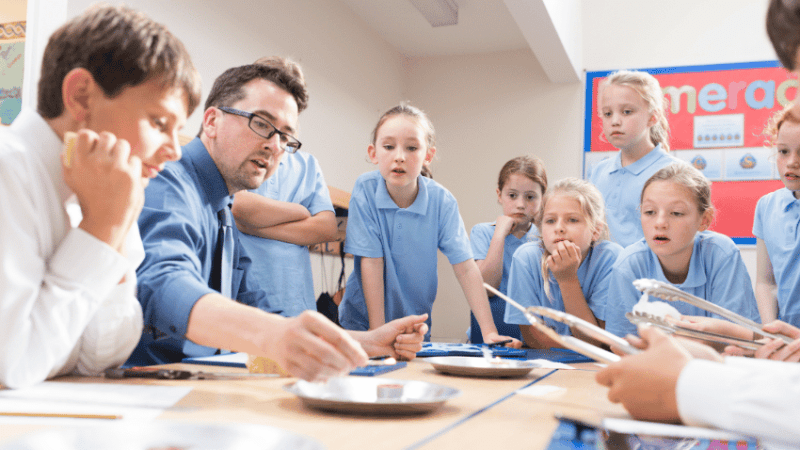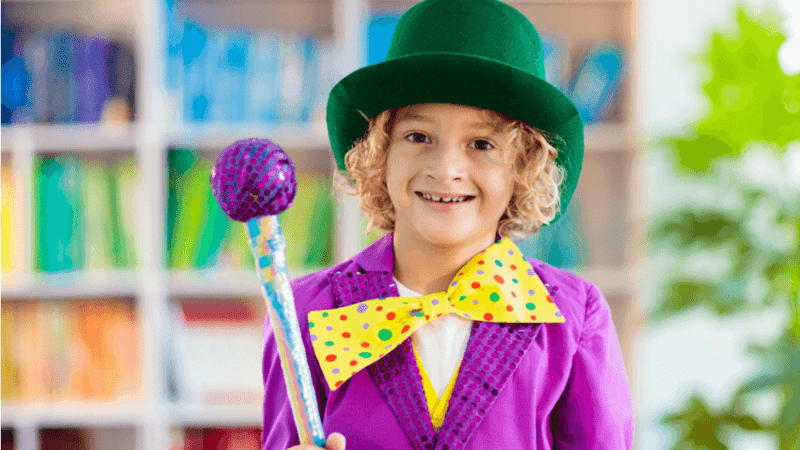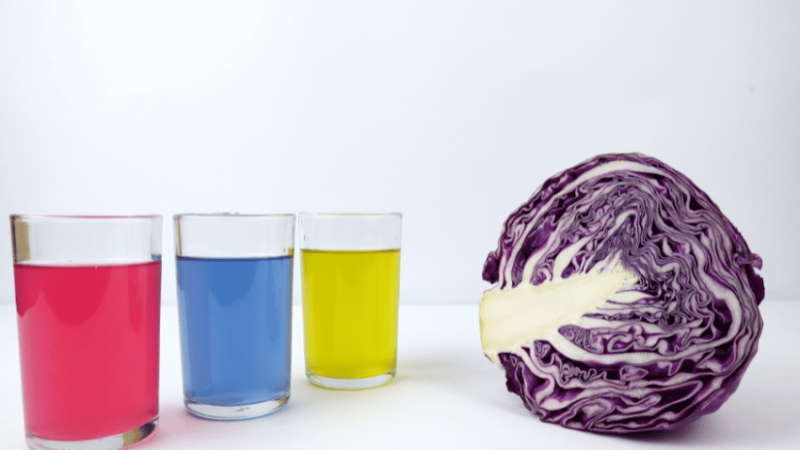Science assessment – One simple question you should ask

Is your assessment getting lost in the chaos of primary science enquiry? One simple question might set you on the right track…
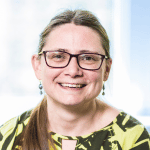
- by Professor Sarah Earle
- Professor of primary science education
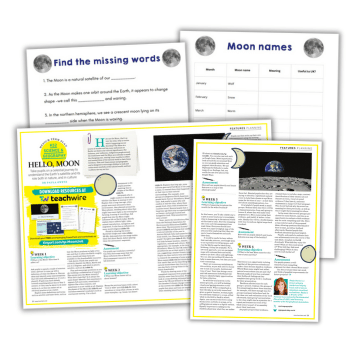
Primary science enquiry lessons are hectic. With 30 children and stuff everywhere, science assessment can feel impossible.
But thinking about science assessment can actually make the lesson more manageable, as you appraise what you’re really trying to teach.
Teaching and assessing children’s ability to work scientifically is challenging because it often happens in the moment. For example:
- observing the woodlouse hide
- measuring the temperature of the drink
- counting the number of stirs until the sugar has dissolved
- changing one thing about the parachute and keeping everything else the same
Classroom management considerations take over and any sort of write-up doesn’t seem to capture what happened. This makes it feel like we need to look at everything, everywhere, all at once.
Science assessment focus
The solution is to ask yourself ‘so what?’. What matters? What do you want to focus on? Pick one part of the plan-do-review enquiry cycle to be the focus for the lesson.
For example, if testing how waterproof different materials are for teddy’s coat, the focus of the lesson might be on the planning phase. There will be discussions around how we could test how waterproof the various materials are. Children can draw diagrams to explain the best method once they have done some trialing.
If the focus is on concluding, when investigating whether longer legs jump further, plan this as a class. Then carry it out in groups with the children recording their own conclusions.
You don’t need full write-ups of method, results, and conclusion. Pupils should only be recording on the focus of the lesson.
Focused recording means that there is more time within the lesson for discussion and investigation, as well as making it easier to judge where the children are in their learning.
Science assessment resources
Focused recording is a key feature of two Education Endowment Foundation (EEF) trialled programmes, which have found a positive impact on children’s science learning outcomes.
Thinking, Doing, Talking Science promotes the importance of talk in science and was the inspiration for many of the activities that are freely available on the Explorify website.
Focus4TAPS, the professional development programme emerging from the Teacher Assessment in Primary Science (TAPS) project, supports the teaching and assessment of working scientifically.
A wide range of lesson plans and pupil work examples can be found on the TAPS section of the Primary Science Teaching Trust (PSTT) website.
WAGOLL
Making age-appropriate judgements about children’s learning in science is also more manageable when you have a tight focus. This is because it is easier to see ‘what a good one looks like’.
For example, if you are running cars down ramps with a focus on recording results, then you would be looking to see if the children’s tables make sense. Are they clear and labelled, with units for measurement?
Whereas, if you are investigating string telephones and focusing on drawing conclusions, then you are looking to see if they can describe patterns and use the word vibrations accurately.
Each enquiry takes place within a conceptual context, meaning that sometimes (e.g. when drawing conclusions) you can make judgements about both working scientifically and the science topic content.
At other times, the focus will be on teaching and assessing a particular ‘working scientifically’ skill.
Responsive and adaptive teaching
Assessment is part of teaching and learning, not a separate bolt-on. Responsive and adaptive teaching will make the most difference to children’s learning.
This is where you will have the impact, so put your energy into the formative use of assessment. What we are looking for is to see whether the children have been able to do the thing that we were focusing on, and if not, then to do something about it.
For example, if they are drawing how shadows are made and have no light source, or they have mixed up the words for reflections and shadows, then we need to do some more exploring and talking before moving on to measuring shadows.
We can tweak the next lesson or the next question we ask them, so that we can address the gaps that we find.
Building a shared vision
Building a shared vision of progression in primary science is not something that we do alone. The following are all great for professional development:
- Talking to other teachers in your school
- Sharing what the children are doing in your lessons
- Seeing what has been done in other classes
As well as the TAPS examples, the Pan-London Assessment Network (PLAN) also has a wide range of pupil work examples freely available on their website to support discussions with colleagues.
The busyness of a primary science enquiry lesson is a good sign that pupils are exploring, discussing and investigating.
Being clear about the focus for your lesson, and sharing this with the children, makes it more manageable and productive, as there is a shared focus on the science learning, making it easier for you – and the children – to see if they’ve grasped it.
Is your science assessment working?
If you’re wondering if your assessment is working, remember these top tips:
- This is permission not to write everything down. No full write-ups please – that’s a handwriting lesson.
- Pick a focus for an enquiry lesson (e.g. plan, do or review); that is what you are going to be paying attention to. Don’t worry about anything else for now.
- Use what you see and hear to tweak your next question or instruction – there’s no need to wait to impact the learning (it is not a test, it is teaching).
- Consider what the children were able to do in the lesson, and use this knowledge to make a judgement about their learning at that specific point and to help decide what to do next time.
- Different foci across the year build up into a picture of how the class are developing their working scientifically skills – you don’t have to do it all at once. Breaking up your assessments will allow you to focus more clearly.
Sarah Earle is a professor of primary science education at Bath Spa University. Previously a primary school teacher, she now leads national research projects such as Focus4TAPS and the Nuffield practical work project.





